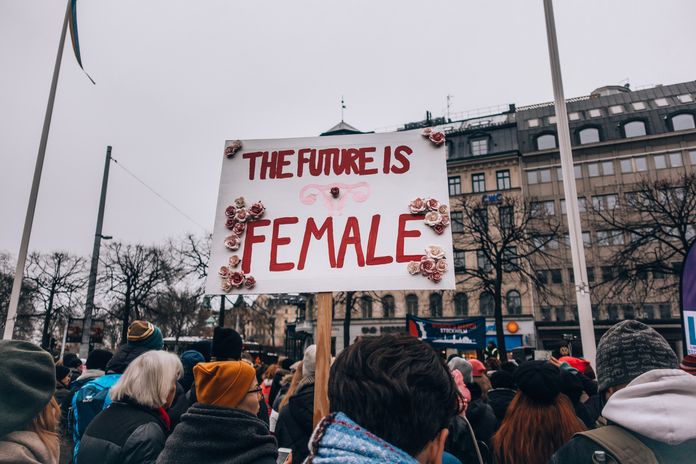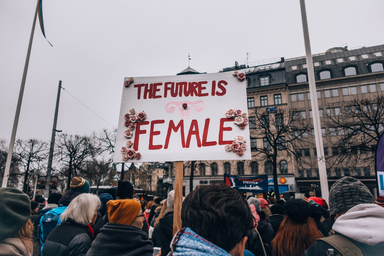Trigger Warning: Discusses violence against women
For women and girls all over the world, the internet is not a safe or equal space.
Women face online violence in all its horrific forms on a daily basis and are left to suffer alone — and this should no longer be the norm in our digital world. With the internet now a necessity in every aspect of modern life, women deserve digital spaces where they can be themselves, share their ideas and participate in public forums without fear.
Online gender-based violence is targeted harassment and discrimination against women and girls due to their gender identity. It occurs across digital spaces and includes a wide range of tactics, including doxing, cyberstalking and non-consensual sexting. These harmful tactics are employed online to intimidate, humiliate, discredit and silence women, especially women in public-facing careers like journalism and politics.
While both women and men experience online abuse and harassment, attacks against women are often sexual and rooted in misogyny. The highly intimate nature of these attacks affects women in devastating ways.
“They wanted to kill me. They were going to come after my family. My address was posted all over the internet,” said longtime Al Jazeera journalist Kimberly Halkett in a recent report. “But the part that really upset me, and that rattled me to my core — they went after my 15-year-old daughter.”
Halkett’s frightening experience shows how real and personal online violence is for women. It’s not an issue that goes away once women turn off their phones. Rather, it’s an issue that not only harms their own mental health, professional credibility and social reputation but also the safety of their loved ones. In other words, online gender-based violence doesn’t stay online. It invades women’s real lives and produces severe and even deadly consequences.
Back in 2017, Maltese investigative journalist Daphne Caruana Galizia faced constant online death threats before her assassination by a car bomb. The tragic death of Caruana Galizia shocked the world, making news headlines and sparking international conversation. However, the case of Caruana Galizia is unfortunately not unique. It’s part of a disturbing and growing trend aimed at keeping women out of public affairs.
The serious risk of online attacks spilling into the real world is driving many young women away from political participation. They avoid pursuing public careers, leadership positions and active online presences out of fear that their gender will be weaponized against them. Online violence has consequently become yet another barrier for women and girls in politics, undermining decades of progress toward global women’s rights.
The chilling effect of online violence is being felt by women and girls everywhere. In a survey of 14,000 girls and young women in 22 countries, more than half reported experiencing online abuse before their 18th birthday. Due to being frequently targeted online, nearly one-fifth of the girls surveyed became less active on social media. Intense harassment leads women to practice self-censorship, stop posting their opinions and even leave social media. Therefore, online violence against women is more than a safety issue. It’s a human rights issue that reinforces gender inequalities, normalizes sexual and physical violence and prevents women from exercising free expression.
Addressing online violence is imperative for securing gender equality in today’s digital world. For any real change to happen though, we need to take action. We need to speak up against this prevalent issue, not stay silent. We need to report instances of harassment targeting women on social media, not join in. We need to stand with our female friends, peers and relatives who experience online violence, not belittle them.
Solidarity with women is how we can create an inclusive and equitable internet that values, respects and recognizes the worth of all.


